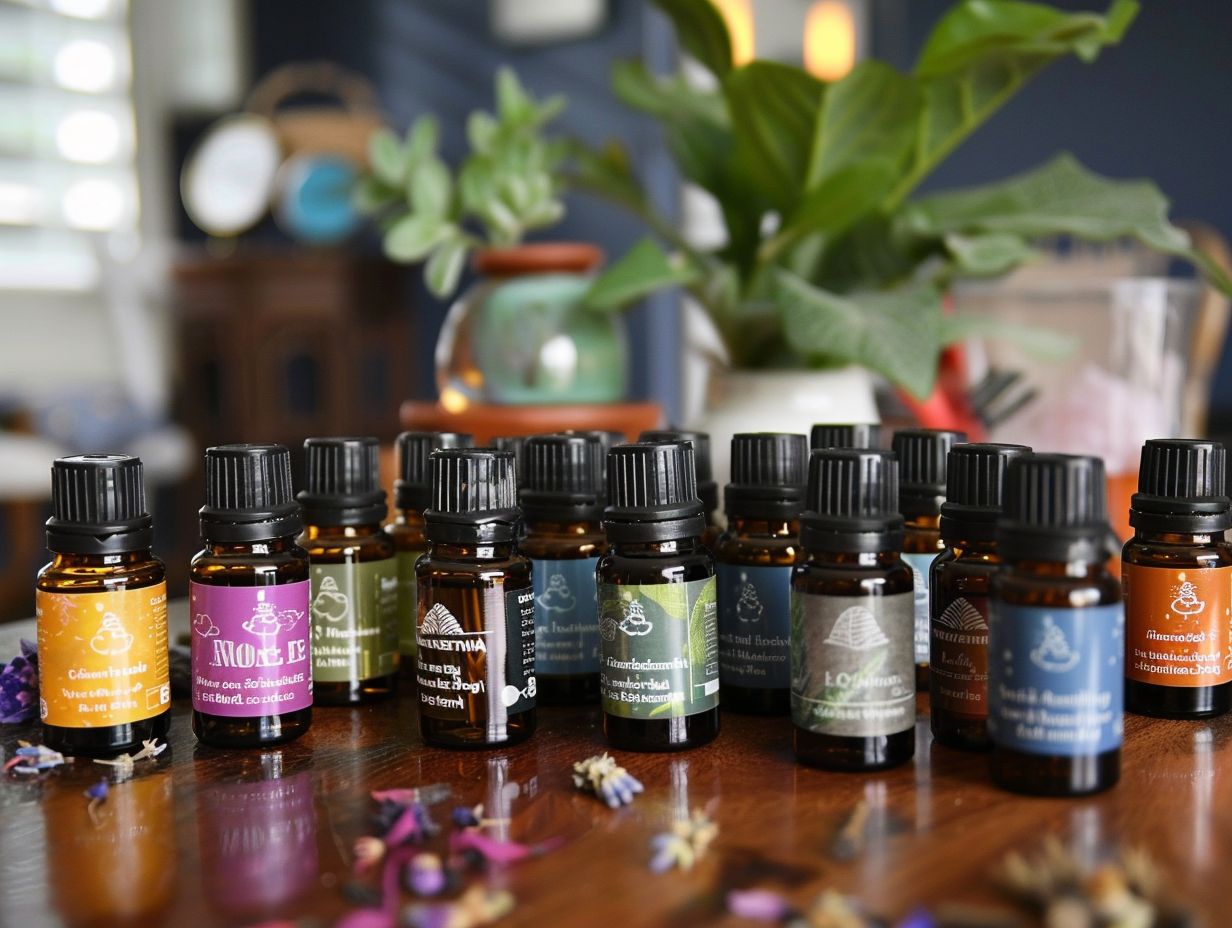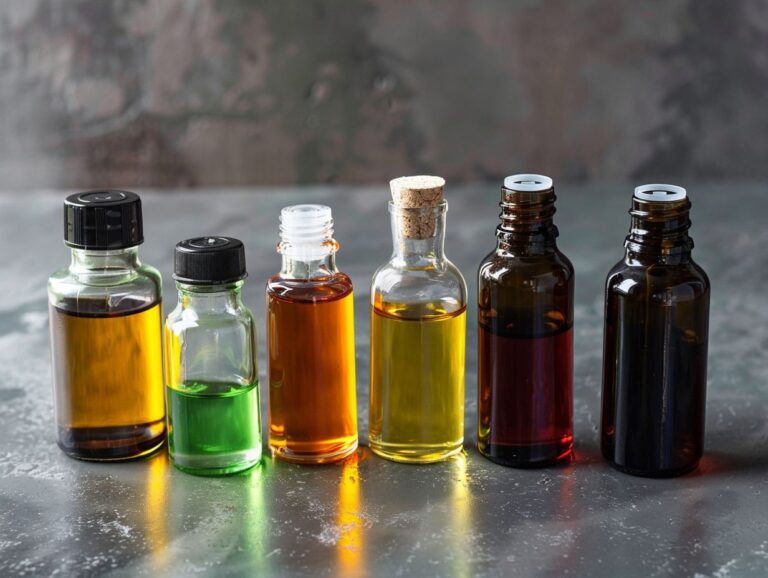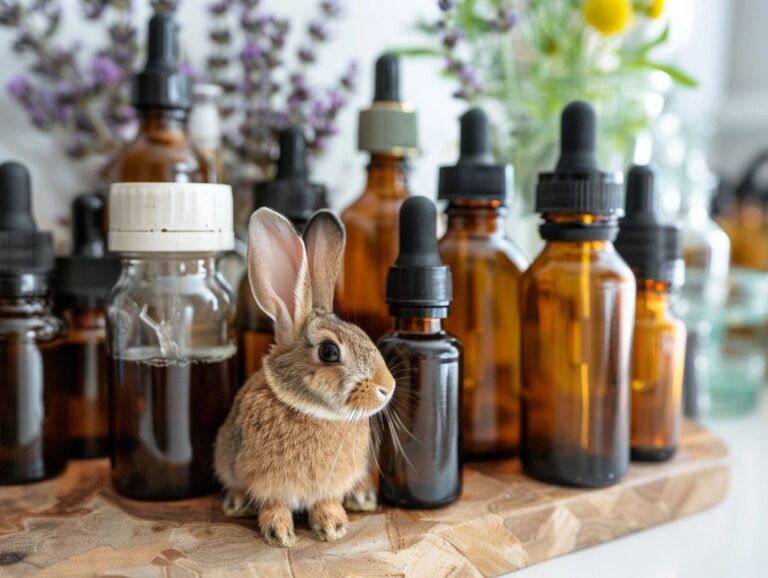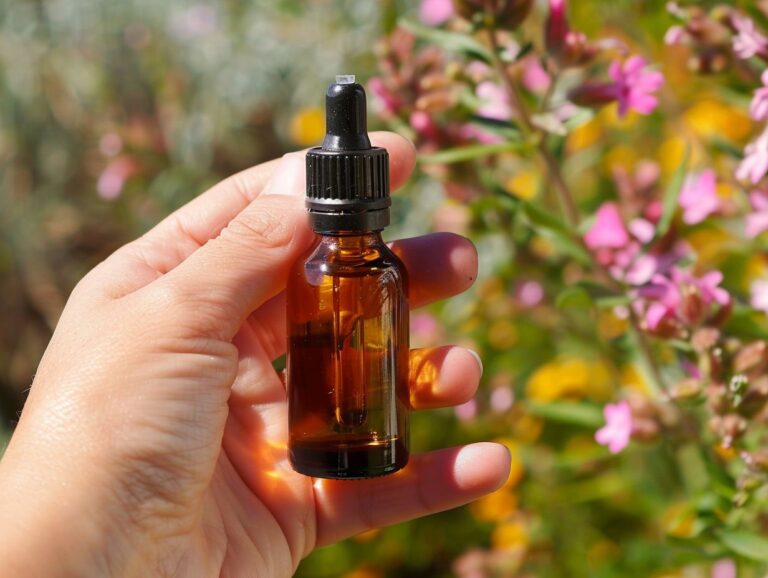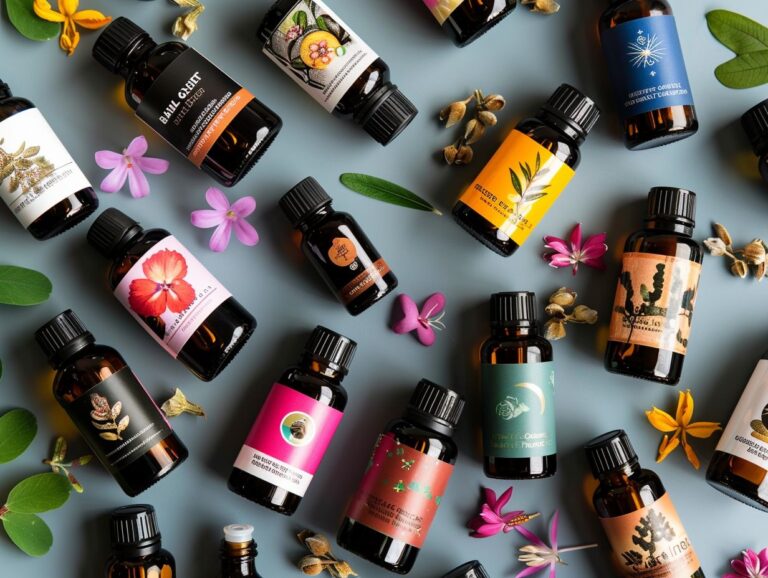What Essential Oils Are Antiviral
Essential oils have gained popularity for their various health benefits, including antiviral properties.
We will explore what makes essential oils antiviral, how they can inhibit virus replication, boost the immune system, and reduce inflammation.
Learn about the best essential oils that kill viruses such as tea tree, eucalyptus, oregano, lemon, and peppermint oils.
Discover tips on how to use these oils safely and precautions to take when using them.
Key Takeaways:
What Are Essential Oils?
Essential oils are highly concentrated extracts derived from plants, known for their aromatic properties and potential therapeutic benefits. Eucalyptus essential oil is one such oil that has gained popularity for its diverse applications in aromatherapy, skincare, and wellness.
These oils are typically extracted through methods such as steam distillation, cold pressing, or solvent extraction, preserving the potent essence of the plant. Eucalyptus oil, derived from the leaves of the Eucalyptus tree, is revered for its refreshing and invigorating scent, making it a staple ingredient in perfumery and spa products.
What Are Antiviral Essential Oils?
Antiviral essential oils are natural extracts known for their ability to combat viral infections such as COVID-19. These oils exhibit antiviral activity against a spectrum of viruses, making them potential candidates for therapeutic targets in the ongoing health and humanitarian crisis.
One of the key factors behind the effectiveness of antiviral essential oils is their rich chemical composition, comprising compounds like terpenes, phenols, and aldehydes. These bioactive molecules contribute to the oils’ antiviral properties by disrupting viral replication processes, inhibiting viral entry into host cells, and enhancing the immune response against infections.
- For instance, tea tree oil is well-known for its potent antiviral effects due to its high concentration of terpinen-4-ol, which has demonstrated efficacy against various viruses. Similarly, eucalyptus oil contains cineole, a compound that exhibits broad-spectrum antiviral activity and can help alleviate respiratory symptoms.
- Essential oils like lavender, peppermint, and lemon exhibit not only antiviral but also antibacterial and anti-inflammatory properties, making them versatile options for holistic health and wellness.
What Makes Essential Oils Antiviral?
Understanding the antiviral properties of essential oils involves looking into their molecular mechanisms and pharmacological actions that target specific viral components such as SARS-CoV-2, elucidating the mechanisms by which these oils inhibit viral replication and combat respiratory conditions.
Essential oils, known for their diverse chemical composition, interact with viral strains by disrupting the viral envelope or inhibiting viral protease activity, crucial for viral replication.
This interaction can disrupt viral entry into host cells and interfere with viral assembly and release.
The pharmacological actions of essential oils include modulation of host immune responses, reducing inflammation and enhancing mucociliary clearance, contributing to their efficacy in managing respiratory infections.
How Do Essential Oils Work Against Viruses?
Essential oils exert their antiviral effects by targeting essential components of viruses, such as the influenza virus, through interactions with their specific essential oil components like monoterpenes and sesquiterpenes.
This targeted approach is crucial in the fight against viruses, as monoterpenes and sesquiterpenes have been found to disrupt viral membrane structures, preventing viruses from entering and infecting host cells. The antimicrobial properties of these compounds help in deactivating viruses and reducing their ability to spread within the body.
Research suggests that essential oils containing high concentrations of these terpenes exhibit potent antiviral activity, making them promising candidates for natural antiviral therapies. The complex chemical profiles of essential oils play a significant role in their ability to combat a wide range of viruses, including influenza, by targeting multiple steps in the viral replication cycle.
Inhibiting Virus Replication
Essential oils inhibit virus replication by interfering with the viral lifecycle through their unique chemical composition, disrupting key processes necessary for viral replication and spread.
These essential oils contain a variety of compounds like terpenes, phenols, and aldehydes which have been found to target different stages of the viral replication cycle. For example, certain essential oils can inhibit viral attachment to host cells, preventing the virus from entering and infecting the cell. Some compounds within essential oils can interrupt viral transcription and replication, hindering the virus’s ability to make copies of itself.
This disruption of viral processes by essential oils ultimately leads to a reduction in viral load and limits the spread of the infection within the host.
Boosting Immune System
Essential oils contribute to boosting the immune system, helping the body combat COVID-19 symptoms and other health challenges by leveraging their health-promoting effects and enhancing the body’s natural defense mechanisms.
One of the key attributes of essential oils is their ability to stimulate the immune response, which plays a crucial role in fighting off infections and diseases, including those caused by the COVID-19 virus. These oils contain potent compounds that possess antiviral, antibacterial, and anti-inflammatory properties, all of which are instrumental in easing respiratory issues commonly associated with the virus, such as coughing and congestion. By inhaling certain essential oils or using them in a diffuser, individuals may experience relief from symptoms like fatigue, fever, and headaches. common signs of a viral infection. The aromatic nature of essential oils can have a positive impact on mental wellbeing, reducing stress and anxiety levels that often accompany illness, thereby contributing to an overall sense of wellness during challenging times.
Reducing Inflammation
Essential oils exhibit anti-inflammatory properties by engaging in molecular docking with specific targets, offering therapeutic benefits in reducing inflammation associated with viral infections and respiratory conditions.
When essential oils interact with these molecular targets, they modulate the activity of inflammatory pathways, leading to a decrease in cytokine production and overall inflammation.
- Studies have shown that essential oils like lavender, peppermint, and tea tree oil possess potent anti-inflammatory effects through their interactions at a molecular level.
This mechanism of action not only helps in managing acute inflammation caused by infections but also proves beneficial in chronic inflammatory conditions such as arthritis and allergies.
What Are the Best Antiviral Essential Oils?
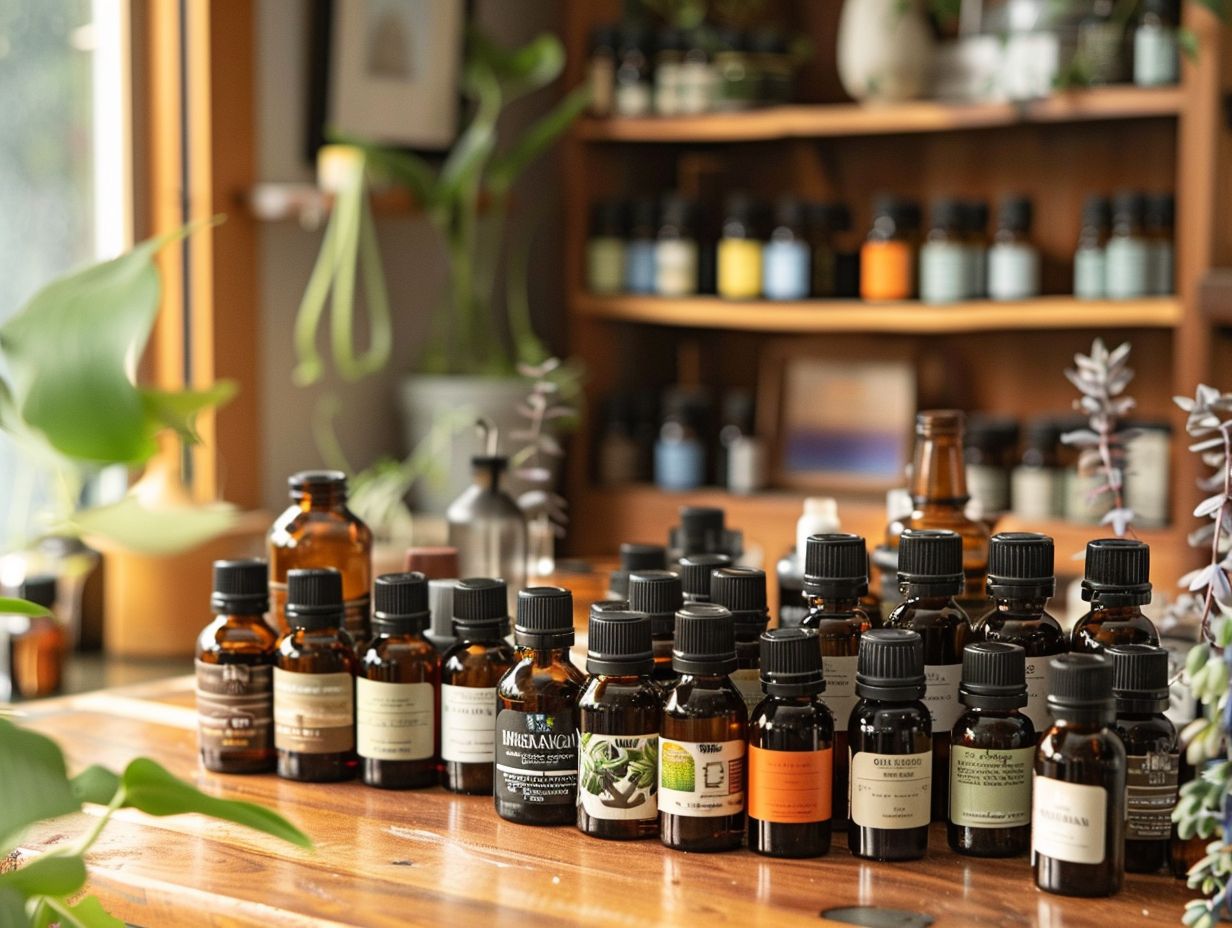
1,8-Cineole, commonly found in eucalyptus and rosemary essential oils, is renowned for its respiratory benefits and its ability to combat respiratory viruses. Limonene, present in citrus oils like lemon and orange, has shown antiviral properties against various strains. -Pinene, abundant in oils such as pine and fir, exhibits strong antimicrobial activity and can help in preventing the spread of viruses. These essential oil components work synergistically to target different viral mechanisms, making them valuable tools in natural antiviral therapy.
Tea Tree Oil
Tea Tree Oil is renowned for its natural antiviral properties, making it a valuable asset in pharmaceuticals for its potential to combat viral infections and enhance health outcomes.
Its effectiveness is attributed to the presence of compounds like terpinen-4-ol and cineole, which have been shown to exhibit potent antiviral activity.
Studies have indicated that Tea Tree Oil can inhibit the replication of various viruses, including influenza and herpes simplex virus.
Its anti-inflammatory and immunomodulatory effects further contribute to its ability to strengthen the body’s defenses against viral invaders.
Eucalyptus Oil
Eucalyptus Oil stands out for its therapeutic benefits supported by clinical studies, showcasing its potential as an effective antiviral agent with diverse health-promoting effects.
One of the key attributes of Eucalyptus Oil lies in its ability to alleviate respiratory issues, such as coughs and congestion, owing to its expectorant properties. Studies have indicated that the oil’s antimicrobial properties make it effective in combatting various pathogens, including viruses. Its analgesic properties make it a popular choice for relieving muscle and joint pain. The oil is also known for its anti-inflammatory effects, which can aid in reducing swelling and pain.
Oregano Oil
Oregano Oil is valued for its effectiveness in addressing respiratory conditions, although caution is advised due to potential side effects that may arise from its use.
Thanks to its natural antibiotic and anti-inflammatory properties, oregano oil can offer relief for conditions such as sinusitis, bronchitis, and asthma. The active compounds in oregano oil help reduce inflammation in the respiratory tract, making it easier to breathe and promoting overall respiratory health.
Some individuals may experience digestive issues or allergic reactions when using oregano oil orally or topically. It is important to use this herbal remedy in moderation and consult with a healthcare professional to ensure safe and effective usage.
Lemon Oil
Lemon Oil offers support in vaccination efforts by targeting specific viral strains, demonstrating its potential in enhancing immune responses and combating viral infections.
The use of Lemon Oil in vaccination programs is significant due to its natural antimicrobial properties that are known to have a positive impact on various viral strains. Research indicates that the compounds found in Lemon Oil can help strengthen the immune system, making it more effective in recognizing and fighting off viruses. By including Lemon Oil in vaccine formulations, it may not only enhance the body’s response to vaccination but also provide additional protection against a wider range of viral infections.
Peppermint Oil
Peppermint Oil contributes to addressing health and wellness during worldwide pandemics, offering relief and support in the face of health and humanitarian crises.
Its natural properties, including menthol, have been lauded for their potential to ease respiratory symptoms such as coughs and congestion, common in viral outbreaks. The antimicrobial and anti-inflammatory qualities of Peppermint Oil can bolster the body’s defenses and promote overall well-being, crucial during times of global health emergencies. When used in aromatherapy or topically, this essential oil may help alleviate stress and anxiety, which often escalate during pandemics and other major health crises.
How to Use Antiviral Essential Oils?
Utilizing antiviral essential oils involves various methods such as inhalation, topical application, and ingestion, catering to individual preferences and needs for optimal health benefits.
Each method offers distinct advantages depending on personal preferences and desired outcomes. Inhalation, like through diffusers or steam inhalation, allows the oils to enter the body quickly via the respiratory system, providing immediate relief.
On the other hand, topical application, such as massage or adding oils to skincare products, targets specific areas and can be soothing for both body and mind.
Ingestion, when done safely under expert guidance, can offer systemic benefits but requires caution and precise dosing to avoid adverse effects. Understanding these different methods of application is crucial for maximizing the benefits of antiviral essential oils.
Inhalation
Inhalation is a popular method for using antiviral essential oils, allowing for quick absorption and diffusion in places like homes or offices, promoting a sense of well-being and comfort.
When using essential oils for inhalation, one can enjoy their benefits through multiple applications. In a home setting, diffusing oils like lavender or eucalyptus can help create a soothing atmosphere, perfect for relaxation or sleep. On the other hand, in an office environment, citrus oils such as lemon or orange can boost energy levels and improve focus. This method of inhalation not only benefits the individual but can also enhance the overall ambiance of the space, making it a versatile and effective practice.
Topical Application
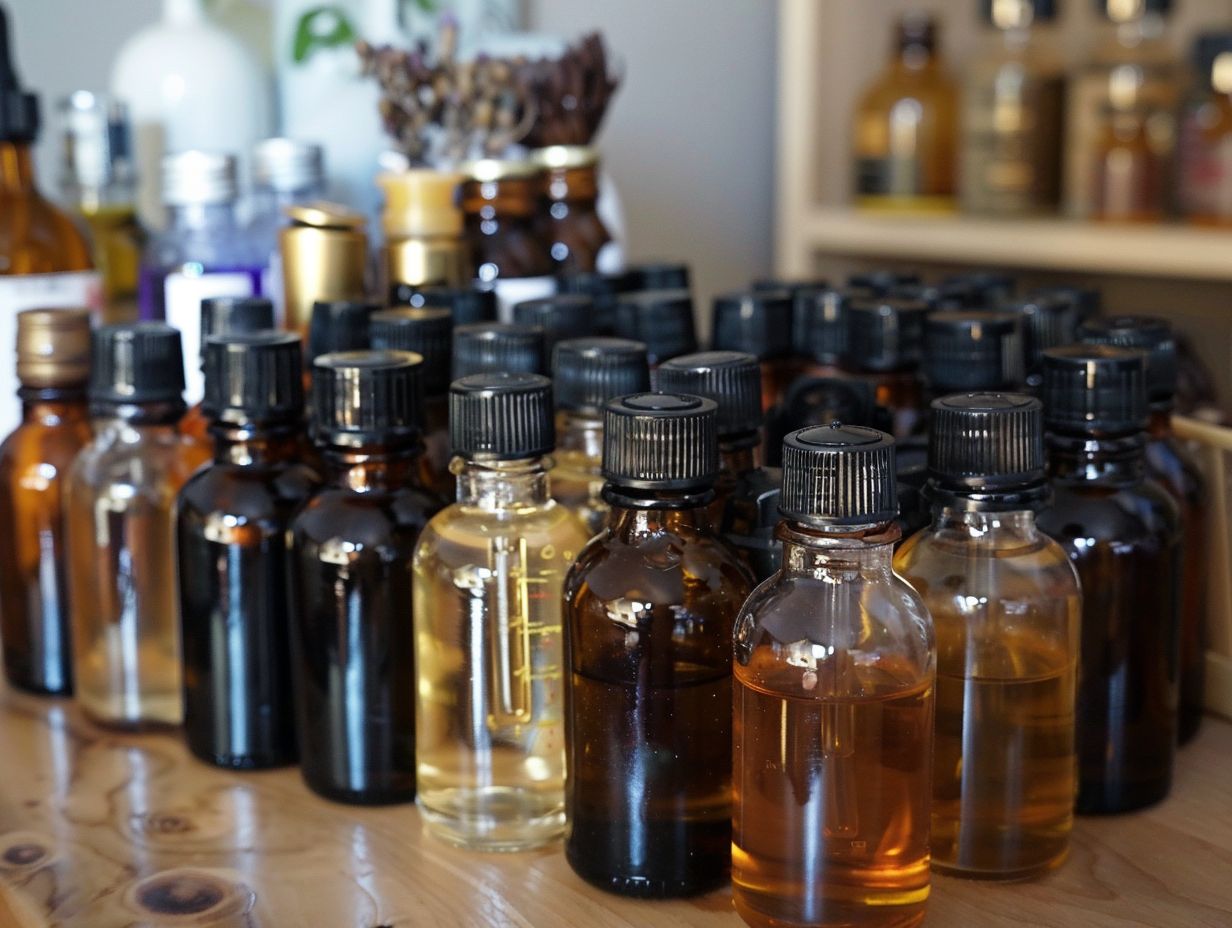
Topical application of antiviral essential oils involves applying them directly to the skin, utilizing various products and brands to enhance absorption and therapeutic effects.
One of the popular methods for topically applying antiviral essential oils is through the use of carrier oils such as coconut oil or jojoba oil, which help dilute the essential oils and promote better absorption into the skin. Brands like doTERRA and Young Living offer high-quality essential oils specifically formulated for topical use. These products are often blended with complementary oils to enhance their antiviral properties and provide a pleasant aroma during application.
The process of massaging the oil blend onto the skin not only ensures absorption but also promotes relaxation, making it a therapeutic experience.
Ingestion
Ingesting antiviral essential oils is another method of utilization, offering potential benefits in supporting overall health and wellness, although caution is advised to prevent adverse effects.
Some individuals choose to ingest essential oils by adding a few drops to a glass of water or incorporating them into recipes for a flavorful twist. The act of ingesting essential oils allows for their beneficial compounds to be absorbed into the bloodstream, where they can exert their effects on various bodily systems. It is crucial to note that not all essential oils are safe for ingestion, and consulting a healthcare professional is highly recommended before incorporating this practice into your routine.
Are There Any Side Effects of Using Antiviral Essential Oils?
Despite their benefits, using antiviral essential oils may lead to side effects such as skin irritation, allergic reactions, and interactions with medications, underscoring the importance of caution and moderation in their use.
When applying antiviral essential oils topically, some individuals might experience skin irritation, manifested as redness, itching, or a burning sensation. It is crucial to perform a patch test before widespread application to minimize this risk. Allergic reactions to certain essential oils could occur, ranging from mild symptoms like hives to severe ones such as difficulty breathing. Always be vigilant for any signs of an allergic response.
Mixing antiviral essential oils with certain medications can lead to unwanted interactions. For instance, some essential oils may interfere with blood thinners or affect the efficacy of prescribed drugs. Consulting a healthcare professional before incorporating these oils into your routine is recommended to avoid any adverse effects on your medication regimen.
Skin Irritation
Skin irritation is a common side effect associated with certain antiviral essential oils, resulting from their biological activities and interactions with the skin, highlighting the importance of patch testing and dilution.
These antiviral essential oils contain potent compounds that can trigger skin reactions when applied undiluted or in high concentrations. The biological activities of these oils, such as their antimicrobial properties, may challenge the skin’s natural barrier, leading to irritation.
It is crucial to dilute essential oils properly before direct application to reduce the risk of irritation. Conducting a patch test on a small area of skin can help identify any potential allergic reactions or sensitivities beforehand.
Allergic Reactions
Allergic reactions may occur in response to specific plant species present in antiviral essential oils, underscoring the pharmacological significance of understanding individual sensitivities and potential allergic risks.
For instance,
- eucalyptus and tea tree oils, touted for their antiviral properties, contain compounds like eucalyptol and terpinen-4-ol that can trigger allergies in some individuals.
- lavender and lemongrass oils, widely used in aromatherapy, may lead to skin reactions due to linalool and citral content.
- Peppermint oil, commonly employed for its refreshing scent, can cause respiratory issues in susceptible individuals.
Interaction with Medications
Antiviral essential oils may interact with medications, affecting their efficacy or leading to adverse events, emphasizing the need for individuals to consult healthcare providers and avoid potential risks by understanding such interactions.
When combining antiviral essential oils with medications, it is crucial to be aware of the potential impact on treatment outcomes. Studies have shown that certain essential oils, such as tea tree oil and eucalyptus oil, can alter the metabolism of drugs in the body, either enhancing or inhibiting their effects. This interference can result in unexpected side effects or reduced therapeutic benefits. Therefore, individuals should communicate openly with their healthcare team to ensure safe and effective use of both essential oils and prescription medications.
Precautions When Using Antiviral Essential Oils
To ensure safe and effective use of antiviral essential oils, it is crucial to follow precautions such as proper dilution, consulting a doctor before usage, and avoiding the ingestion of undiluted oils to prevent adverse effects or complications.
Proper dilution is key, as essential oils are highly concentrated substances that can cause skin irritation or other reactions if used undiluted. Always consult a healthcare professional, especially if you are pregnant, nursing, or have underlying health conditions, to ensure that the chosen oil is safe for you.
Avoiding ingestion of undiluted oils is essential since some essential oils can be toxic if consumed orally. Remember, safety first when incorporating these potent plant extracts into your wellness routine!
Dilute Properly
Proper dilution is essential when using antiviral essential oils to avoid adverse reactions or sensitivities in individuals, ensuring that the oils are safely administered to humans, animals, or incorporated into various artworks. “
When these potent essential oils are not diluted correctly, they can cause skin irritation or other allergic responses, especially in delicate creatures such as pets. Ensuring the right dilution ratio is crucial, as it allows for the effective delivery of the oils’ antiviral properties without overwhelming the system. In the realm of artworks, proper dilution helps maintain the integrity of the materials, preventing any unwanted reactions that could damage the creation. By understanding the significance of dilution, individuals can harness the benefits of antiviral essential oils safely across different realms of application.”
Consult a Doctor
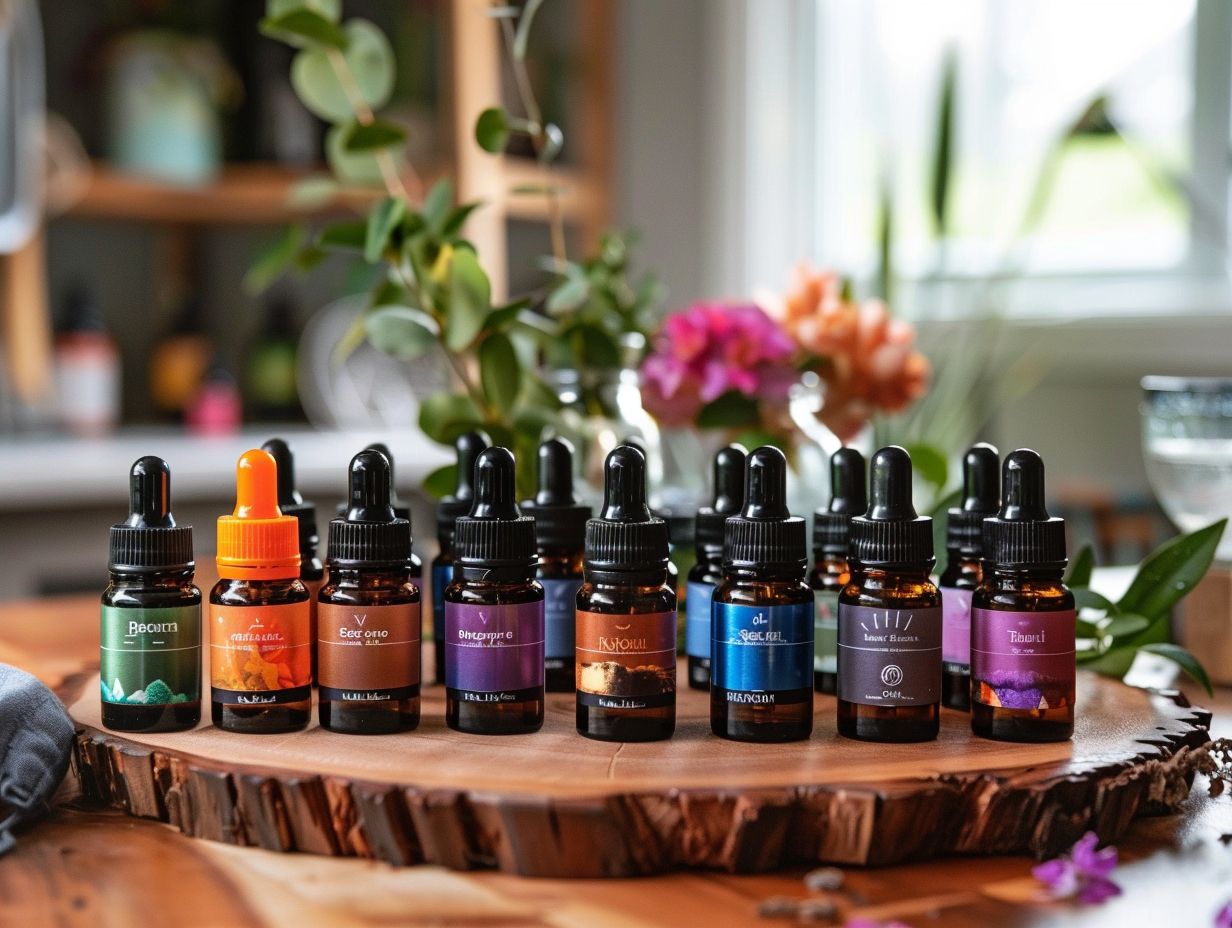
Seeking advice from a healthcare professional or doctor is advisable before using antiviral essential oils, ensuring personalized guidance and recommendations based on individual health conditions or concerns.
This precautionary step is crucial as the efficacy and safety of essential oils can vary depending on factors such as allergies, underlying health issues, and medication interactions. Health organizations stress the importance of obtaining tailored advice to avoid potential risks associated with improper usage. Various books and resources are available to educate individuals on the properties and benefits of different essential oils, yet the expertise of a healthcare provider is invaluable in determining the most suitable options for specific health needs.
Avoid Ingesting Undiluted Oils
Ingesting undiluted antiviral essential oils should be avoided to prevent potential health risks or complications, safeguarding the well-being of individuals and ensuring safe usage practices across different dates and times.
When essential oils are consumed without being properly diluted, they can lead to digestive issues, skin irritations, allergic reactions, and even toxicity. It is crucial to remember that antiviral essential oils are highly concentrated and potent, making direct ingestion unsafe. Instead, experts recommend diluting them in carrier oils or using them aromatically or topically to reap their benefits effectively and safely. By following these guidelines, individuals can enjoy the therapeutic properties of essential oils without risking their health.
Frequently Asked Questions
What essential oils are antiviral?
Some commonly used antiviral essential oils include tea tree, oregano, eucalyptus, peppermint, and lemon.
How do antiviral essential oils work?
Antiviral essential oils contain compounds that can inhibit the growth and replication of viruses, helping to prevent them from causing illness.
Can essential oils completely eliminate viruses?
While essential oils may have antiviral properties, they cannot completely eliminate viruses from the body. They can help boost the immune system and support the body’s natural defense against viruses.
Are essential oils safe to use as antiviral agents?
When used properly, essential oils can be safe and effective antiviral agents. However, it is important to dilute them properly and consult a healthcare professional before using them, especially if pregnant or on medications.
Which essential oils are best for viral respiratory infections?
Eucalyptus, peppermint, and tea tree essential oils are often recommended for respiratory infections as they have both antiviral and decongestant properties.
How can I use essential oils for antiviral purposes?
Essential oils can be used topically, through inhalation, or in a diffuser to experience their antiviral effects. Dilute them with a carrier oil before applying to the skin and follow recommended guidelines for safe use.

